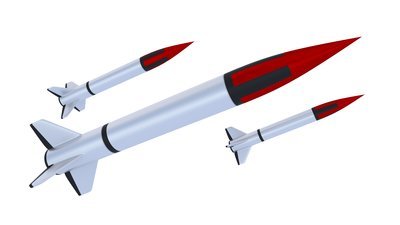Lending crucial support to President Obama’s quest for Congressional approval of a strike on Syria, Speaker John A. Boehner Tuesday voiced his agreement with “the president’s call to action.”
Obama and Vice President Joseph R. Biden Jr. invited Boehner and other bipartisan leaders to the White House in a lobbying campaign to win approval of an attack on Syria. But Obama faces stiff opposition by conservative House republicans who have expressed serious reservations about military involvement in Syria, according to The New York Times.
Representative Eric Cantor of Virginia, who also backed the president, said in a statement. “Understanding that there are differing opinions on both sides of the aisle, it is up to President Obama to make the case to Congress and to the American people that this is the right course of action, and I hope he is successful in that endeavor.”
House Democratic Leader Nancy Pelosi said, “I believe the American people need to hear more about the intelligence,” adding that the administration needed to continue making its case in hopes that Americans will be “persuaded of” military action.
“There’s work to be done,” she said. “Some won’t ever be comfortable with it.”
Secretary of State John Kerry, Defense Secretary Chuck Hagel and the chairman of the Joint Chiefs of Staff, Gen. Martin E. Dempsey today testified before the Senate Foreign Relations Committee; and on Wednesday, Kerry and Hagel are scheduled to appear before the House Foreign Affairs Committee.
After a White House meeting on Monday with Senators John McCain, Republican of Arizona and Lindsey Graham, Republican of South Carolina, there appeared to be broad agreement with the president that any attack on Syria should be to “degrade” the Syrian government’s delivery systems and could include the use of aircraft, artillery and rockets—the kind of rockets that according to the Obama administration were used by President Bashar al-Assad in an Aug. 21 sarin attack in the Damascus suburbs that killed more than 1,400 people.
The senators plan to meet with National Security Adviser Susan E. Rice to discuss the strategy in more detail.
“It is all in the details, but I left the meeting feeling better than I felt before about what happens the day after and that the purpose of the attack is going to be a little more robust than I thought,” Graham said.
McCain confirmed in an interview that Mr. Obama did not say specifically what weapons might be provided to the opposition or discuss in detail what Syrian targets might be attacked.
“There was no concrete agreement, ‘O.K., we got a deal,’ ” Mr. McCain said. “Like a lot of things, the devil is in the details.”
In remarks to reporters outside the West Wing, McCain called the meeting “encouraging,” and urged lawmakers to support Mr. Obama’s plan for military action, adding that a no vote in Congress would be “catastrophic” for the United States and its credibility in the world.
Mr. McCain said he believed after his conversation with the president that any strikes would be “very serious” and not “cosmetic.”
Although comments from McCain and Graham represent a positive development in the administration’s lobbying blitz on Syria, the White House still faces a tough challenge to win votes in the House and Senate. Many lawmakers entirely oppose a strike, and others favor a resolution that would provide for more limited military action than what is in a draft resolution that the White House has sent to Capitol Hill.
What’s your opinion? Include your comments below or on our Discussion Forum.
[Source: New York Times]










